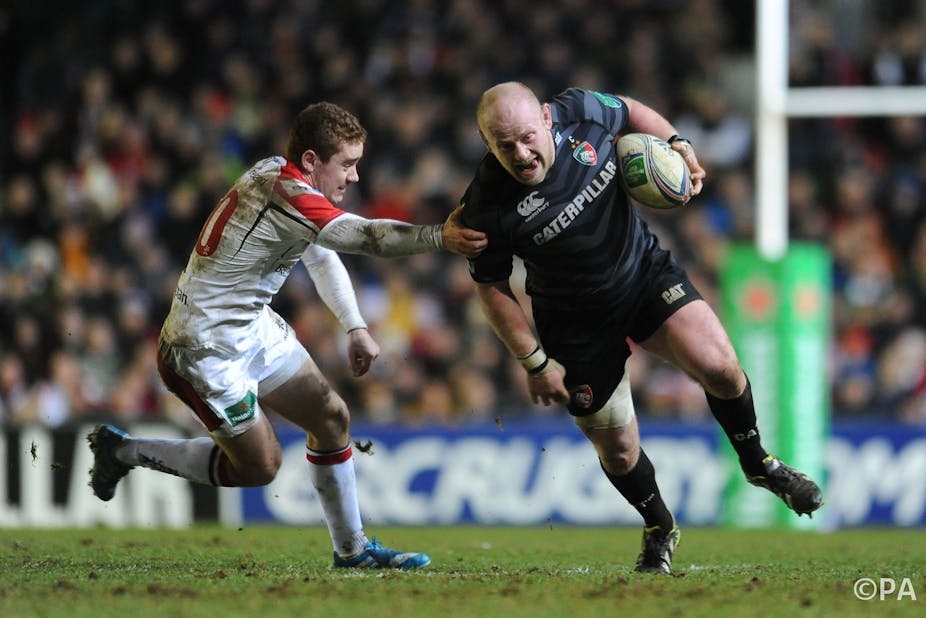The Heineken Cup, European rugby union’s premier competition, faces an uncertain future.
English clubs continue to woo teams from France and Wales into a rival competition, with promises of increased revenue from their contract with BT Sport. But the possibility of alternative domestic and European championships succeeding is hamstrung by the realities of the international game, the remit of the International Rugby Board (IRB), and European competition and Intellectual Property (IP) law.
Frustrated by their inability to woo French teams due to the opposition of the French Rugby Union (FRU), the English clubs are trying to exploit dissatisfaction among the Welsh regional sides over the financial arrangements between them and their governing body, the WRU. The English clubs hope the Welsh regions will abandon Europe for a new English-Welsh domestic competition.
If the Welsh regions were to opt for this alternative it would destroy the current Pro12 League, leaving Irish, Scottish and Italian clubs without any meaningful competition. The IRB, with its mandate to promote Rugby Union all over the world, would have real difficulty in sanctioning any competition that would lead to an inevitable decline in standards and interest in several countries.
Way forward
So could any new arrangement proceed without the permission of rugby’s national and international governing bodies? Or to put it another way, who “owns” rugby union?
While neither rugby union nor rugby league appear to be trademarks under UK law, the International Rugby Board is a registered trademark. The IRB is therefore likely to argue that it owns the brand, and any new competition would face challenges over potential intellectual property issues.
Rugby authorities do not shy away from conflict where their branding is concerned, as demonstrated in 2002 when the RFU challenged clothing produced by Cotton Traders, which included the red rose emblem.
What may be more likely is litigation against those clubs or regions that set up any future competition, especially if the IRB were able to claim that their brand or reputation had suffered as a result. For a breakaway competition, the only way around this would be to establish a new variant of the game, much like the breakaway that led to the founding of Rugby League in 1895, or even, perhaps, to convert to Rugby League.
However this would deprive English and Welsh rugby players of the chance to play international Rugby Union, the basis of financial success for both clubs and players.
Disputes could stretch into contracts concerning replica shirts, the sale of tickets or sponsorship agreements, all of which necessarily include provisions on branding and trademarks. The clubs considering “breaking away” may find their licensing agreements being terminated.
All of these specific IP considerations must also be considered in light of competition law provisions, and treaty articles that encourage the free movement of goods and services, and the prevention of monopolies. Failing to allow breakaways to benefit from established IP rights may fall foul of EU competition provisions, as there is always a tension between IP and competition.
Competition law
But intellectual property and the IRB aren’t the only issues confronting a possible rugby breakaway. If deprived of their right to do business, the eight professional clubs in Ireland, Scotland and Italy, and particularly the hugely successful Irish big three, would undoubtedly look to European competition law to argue that they have a legitimate stake in any new arrangement.
The issue is likely to boil down to whether sporting interests should be given precedence over undistorted competition, one of the fundamental values of the European internal market. Any case could well end up in the European Court of Justice, which is not always sympathetic to special pleading by sporting interests.
Similarly, if Welsh teams were to be brought in to English rugby, what accommodation would be made for the clubs in the second tier who have invested heavily in grounds and players on the basis of potential promotion to the Premiership? Failure to honour promotion arrangements would undoubtedly provoke a similar recourse to the law.
At the heart of English clubs’ concerns is the increased private wealth being invested in French rugby clubs. As a remedy, it seems they are seeking to wrench a larger share of income from the Heineken Cup, income which is currently managed in the interests of the European game as a whole. However, since the French are as likely to benefit from any redistribution as the English this is unlikely to resolve their real problems.

